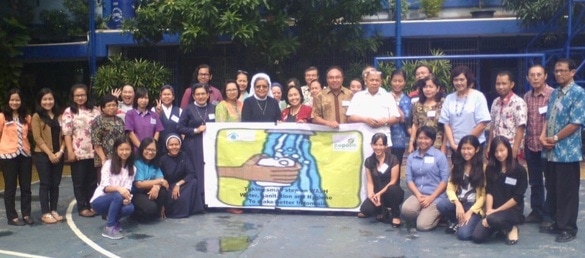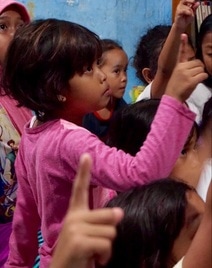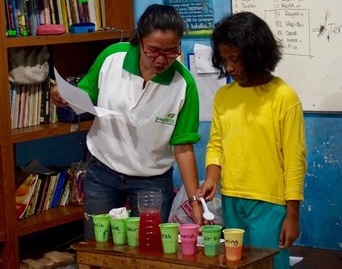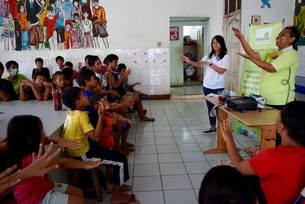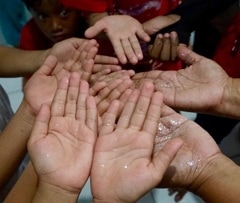Faith-based WASH training in Indonesia
|
Indonesia has a population of 255 million people who live on 6,000 inhabited islands (out of a total of 17,508) in Southeast Asia. It is the fourth most populated nation globally and the world's largest Muslim country.
The problemIndonesia has made significant progress on water and sanitation but millions of Indonesians still have problems. In 2015, Indonesia met the Millennium Development Goal target for water, with 88% of Indonesians having access to an improved source of drinking water. However it missed the sanitation target; only 61% of people have access to hygienic toilet facilities.
This means:
What are we doing about it?Faith in Water has begun working with Christian groups in Indonesia on a faith-based approach to water, sanitation and hygiene (WASH). This is a pilot initiative to see how effective using a faith-based approach can be in disseminating knowledge and catalysing action.
Our partners Global One are working with the Muslim community and in Spring 2017, both groups will come together in an interfaith workshop to share their experiences. |
Training of Trainers workshop |
Follow up activities |
|
We linked up with a Christian environmental organisation called PEPULIH and the Catholic Diocese of Jakarta. We developed a toolkit on a Christian approach to WASH for Indonesia which was translated into Bahasa Indonesia.
In September 2016 we delivered a 'training of trainers' workshop in Jakarta for 20 people including priests, head teachers of Catholic schools as well as representatives from Catholic orphanages, the Diocesan Justice & Peace Commission, Catholic women’s organisations and Franciscans in Indonesia. This was the first time they had considered practical action on water and cleanliness as an expression of their faith beliefs, and their response was immediately positive. It's also an example of how an initiative can snowball. |
Following the 'training of trainers' workshop, PEPULIH has delivered another workshop to 48 participants from a wide range of groups, from leaders of parishes and women's groups, student representatives and teachers.
Participants also came from different provinces – Java, West Java, East Java and East Nusa Tenggara. The group pledged to share what they'd learned with a further 2052 people based on their networks and membership. Since then PEPULIH has held several workshops with other groups. In November and December, they held workshops for 100 street children; 35 children living around the main Jakarta railway station; and 30 people with learning disabilities. |
